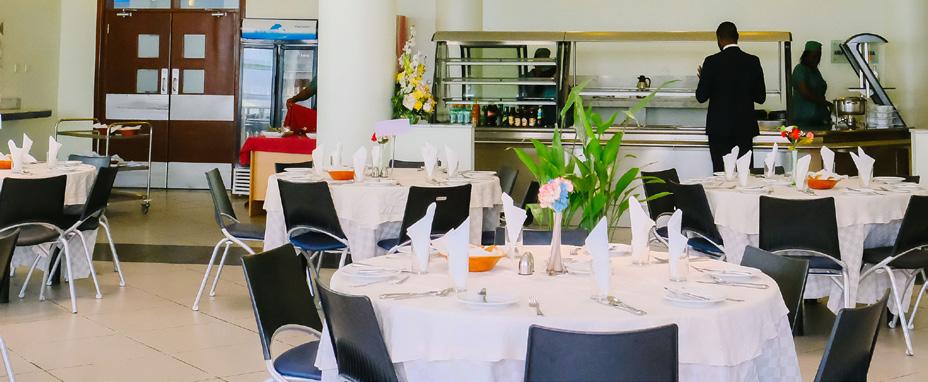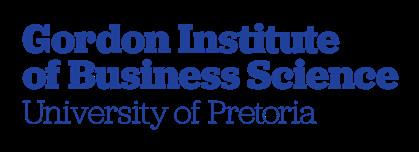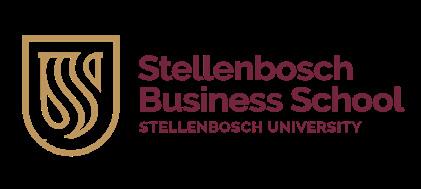LAGOS BUSINESS SCHOOL

CHANGING THE FACE OF GLOBAL BUSINESS EDUCATION


GLOBAL EDITION 10 MUST-WATCH B-SCHOOLS IN AFRICA 2023 MAY 2023
Prof Chris Ogbechie, Professor of Strategic Management and the Dean


Managing Editor
Sarath Shyam
Consultant Editors
Dr. John Andrews
Emma James
Andrew Scott
Naomi Wilson
Stanly Lui
Joseph Alex
Creative Consultants
Charlie Jameson
Edwards Gonzalez
Branding & Marketing Partnerships
Jennifer Anderson
Rupali Mohankar
Monica Davis
Anna Elza
Enquiry
admin@highereducationdigest.com
Free Subscription
May 2023 Vol - 5 Issue - 5
Must-Watch B-Schools in Africa 2023
International Representation
Americas 16192 Coastal Highway, Lewes, DE 19958, USA
Europe
27, Old Gloucester Street, London, WC1N 3AX, UK
Middle East & Africa
P.O. Box 48299, Dubai Silicon Oasis, Dubai, UAE
Asia-Pacific
Ramanashree Arcade, 18 MG Road, Bangalore – 560001, India
Higher Education Digest is a digital magazine published by Connecta Innovation Private Limited. All rights reserved. The opinions expressed in the content and pictures provided are those of the authors. They do not purport to reflect the opinions or views of the Connecta Innovation Private Limited or any of its members and we do not assume any responsibility. The publisher does not assume any responsibility for the advertisements, its content, pictures, and all representation of warranties made in such advertisements are those of the advertisers and not of the publisher.
Higher Education Digest is a Free Subscription digital magazine strictly not for sale and has to be strictly for internal private use only. Publisher does not assume any responsibility arising out of anyone printing copy of this digital magazine in any format and in any country and all matters related to that.


4 Higher Education Digest May 2023
Unlocking Opportunities: Business Education in Africa
Africa, a continent of vast potential and untapped opportunities, has emerged as an exciting destination for international students seeking quality business education. With its rapid economic growth, abundant natural resources, and a young and dynamic workforce, Africa has become an attractive hub for aspiring entrepreneurs and business professionals alike. In recent years, African business schools have recognized this potential and have actively strived to attract students from around the world, fostering a diverse and globalized learning environment.
African business schools have implemented strategies to enhance their international visibility and reputation to attract students from all around the globe. They have forged partnerships with renowned universities and business institutions worldwide, fostering academic exchanges, joint research initiatives, and student mobility programs. By collaborating with leading international organizations, African business schools showcase their commitment
to excellence, providing students with a platform to engage with global business trends while also promoting their institutions as competitive choices for aspiring business leaders.
One such school is Lagos Business School, which has significantly impacted the Nigerian management education sector that desperately needed programs with international standards and local relevance. A graduate business school of PanAtlantic University (PAU), the school started its operations under the name Centre for Professional Communications (CPC). With a mission to develop professionals with high ethical and professional standards, LBS has evolved over the years. It continues redefining the practice of management on the continent while developing responsible leaders for Africa and the world. We have also identified 10 Must Watch B-Schools in Africa2023 that have been playing a crucial role in Africa’s rise as an educational destination for business studies and presenting exciting prospects for international students. Enjoy Reading.
Sarath Shyam

5 Higher Education Digest May 2023
MANAGING EDITOR’S NOTE
ADVISORY BOARD
Mr. Amulya Sah, PGD PM & IR, PG Diploma in PM&IR (XISS Ranchi)
Chief Human Resources Officer, Former Head HR group Samsung R&D Institute India,Transformative HR Leader, Change agent, Digitization facilitator, Engagement architect, Trainer and Diversity champion.


Dr. Varughese K.John, PhD, MBA, MPhil, MCom, LLB. Former Program Director, MS in Management Program, GSATM - AU


Mr. Dean E. Hoke, M.S, B.A Co-Founder of Edu Alliance, LTD, UAE and Managing Partner of Edu Alliance Group, USA

Major General (Rtd.) Dr. Sunil Chandra, VSM (Vishishta Seva Medal), Ph.D, M. Phil, MA, M.Ed, PGBDA
Ex-M D Army Welfare Education Society, ExCOO GEMS Education - India, Ex- Addl Dir Gen - Army Education, Mentor - Adventure-Pulse
Dr. Ajay Shukla, Ph.D, MBA, BE. Co-founder and Chief Strategy Officer at Higher Education UAE


6 Higher Education Digest May 2023
Dr. Venus M. Alboruto, PhD, Master Teacher, Researcher, Innovator, Trainer.
Mamta Thakur Former CEO ( ASEAN), Arc Skills
Ph.D, MBA, BSc. Former Program Director of Ph.D, Recipient of Fulbright Fellowship Award & Dan Evans Award for Excellence and Writer columnist.
Shanthi Rajan (MSHRM, FHEA, AMCILT) Director, Institution Development, University of Stirling, RAK Campus, UAE.
Dr. Hans A. Andrews Ed.D. Distinguished Fellow in Community College Leadership, Olney Central College, Illinois,USA

CEO at BMR Innovations, Ex Senior General Manager at Panasonic, LG, The Hindu, TATA, Author: Moment of Signal & The Roaring Lambs, Motivational Speaker & Leadership Consultant.


Ph.D (Marketing)., SFHEA (UK), MBA (Marketing), PGHRM, BA (Marketing & Economics)
Dr.
Ph.D Senior Director - Global Partnerships, Advisory & Consulting - Connecta®, Adjunct Faculty - Assumption University, Former Global Director Technology & Risk Management - GEMS Education, Former CIO - Athena Education.



7 Higher Education Digest May 2023
Mr. Sreedhar Bevara, MBA, B.Com
Dr. Kuldeep Nagi,
Dr. Khyati Shetty
Manoj Varghese,



8 Higher Education Digest May 2023 CONTENTS
BUSINESS SCHOOL Changing the Face of Business Education in Africa COVER STORY COVER STORY 10 COVER STORY MENTOR’S MANTRA 2023: THE YEAR HIGHER EDUCATION DIGITALISES? Lil Bremermann-Richard, CEO, Oxford International Education Group 26
LAGOS
ACADEMIC VIEW
ARE YOU OK? SIMPLE SOLUTIONS TO ADDRESS MENTAL HEALTH
Joyvina Evans, Assistant Professor, Howard University


INDUSTRY PERSPECTIVE
MISSION-BONDS: ACCENTUATING POSITIVE TEACHER-STUDENT RELATIONSHIPS
& CEO, Williamson Zoom Tutoring Services
INSTITUTIONAL STRATEGY AND THE FUTURE OF AI IN HIGHER EDUCATION
Roger J. Huston, Founder and Principal Consultant, Faith Works Consulting




WHO YOU KNOW OR HOW YOU KNOW? A REFLECTION ON ROLE MODELS IN CAREER CHOICE FROM HIGHER EDUCATION
Barnaby Mollett, Careers Team Leader, UCL


9 Higher Education Digest May 2023
38
Dr.
30
Dr. Ernest Williamson III, Founder
42
34
Dr.
LAGOS BUSINESS SCHOOL
Changing the Face of Business
Education in Africa

10 Higher Education Digest May 2023
COVER STORY
STORY COVER STORY
COVER

Education
Prof Chris Ogbechie , Professor of Strategic Management and the Dean, Lagos Business School
Before the establishment of Lagos Business School (LBS) in 1991, companies in Nigeria had to send their managers abroad for high-quality management training. However, some of the courses taught in the institutions abroad had no relevance to
business practice in Nigeria and Africa. The emergence of LBS significantly impacted the Nigerian management education sector, which desperately needed programmes with international standards and local relevance at the time. “Since our inception three decades ago, we have built a legacy of developing

12 Higher Education Digest May 2023
LBS offers academic programmes, executive programmes and short courses (customised to specific company needs, as well as open-enrolment courses) in management. The offerings have been accredited globally and ranked among the best in Africa, as LBS systematically strives to improve the practice of management on the continent.
its operations under the name Centre for Professional Communications (CPC). In 1992, it became LBS and welcomed the first group of participants to the Chief Executive Programme (CEP), a part-time management programme addressing the needs of CEOs. “The CEP was the first executive programme delivered by LBS. It was a deliberate decision to ‘start the house from the roof.’ Once CEOs see the need for management education, other levels of management will follow,” shares Professor Ogbechie.
With a mission to develop professionals with high ethical and professional standards, LBS has evolved over the years. It continues redefining the practice of management on the continent while developing responsible leaders for Africa and the world. “Our experienced faculty, research, and ideas are effectively changing the face of business locally and globally. The foundation of our values rests on the Christian principles, ideals, and teachings of St. Josemaria Escrivá, the founder of Opus Dei,” asserts Professor Ogbechie.
Industry-Oriented International Learning
concepts and techniques that profoundly impact professional management practice in Africa and how businesses impact society,” says Chris Ogbechie, Professor of Strategic Management and the Dean of Lagos Business School.
A graduate business school of PanAtlantic University (PAU), the school started
LBS has the largest number of African cases and deep connections with the business community in Nigeria and Africa. This helps the school to offer unique insights into the African business landscape and how to do business effectively on the continent. Professor Ogbechie explains, “All participants in our MBA and executive programmes benefit from networking sessions with business leaders, company visits, experiential trips, and cultural immersion visits. Our faculty have industry experience and can share robust ideas and
13 Higher Education Digest May 2023
In recognition of the quality of Lagos Business School’s programmes and of being structured in line with global best practices, it has received several international accreditations. LBS is the first business school in West, East and Central Africa regions to be accredited by The Association of MBAs (AMBA).

experiences with participants.” Besides, the resident international participants at LBS will encounter Lagos, Nigeria’s economic capital, West Africa’s financial hub, and the world’s fastest-growing megacity.
At LBS, international students are exposed to its diverse community of academics, participants, students, entrepreneurs, and alumni, working together to change the face of business management in Africa and beyond. “For over three decades, business leaders and participants worldwide have attended programmes, webinars, and seminars to engage and learn. Our students can engage with students from top business schools through our Global Network for Advanced Management (GNAM) membership,” shares Professor Ogbechie.
LBS has partnered with some of the best businesses outside Nigeria and has benefitted immensely from partnerships with other
14 Higher Education Digest May 2023
business schools worldwide. Professor Ogbechie adds, “We have a growing list of business school partners with whom student and faculty exchanges are regularly organized, as well as collaborations on programmes and research undertaken.” IESE Business School, Spain; IPADE Business School, Mexico; IESEG School of Management, France; University of Stellenbosch Business School, South Africa; Graduate School of Business, University of Cape Town, South Africa; Bocconi University, Milan, Italy and Indian Institute of Management, Ahmedabad are, to name a few among the global institutions that have collaborated with LBS for student exchange programmes.
Our Research Centres and our Exemplary Team of Academicians Research is the lifeblood of the teachinglearning process at the LBS. The school has built a research community that incorporates academics, students, alumni, corporate and government partners, and other universities and research institutions in Nigeria, Africa, and worldwide. “Our research centers generate collaborative research across disciplines, industries, and specialist areas of national and international importance and relevance,” pinpoints Professor Ogbechie. Research centers at LBS and initiatives build a community of experts to advance knowledge, offer student experiences and convene forums with academics and executives to advance business practice.
For instance, Christopher Kolade Centre for Research in Leadership and Ethics (CKCRLE) at LBS was set up to positively influence the Nigerian and African environment through research in leadership and ethics. The

15 Higher Education Digest May 2023
LBS is a member of the Association of African Business Schools (AABS), the Global Business School Network (GBSN), the Principles for Responsible Management Education (PRME), AACSB International-The Association to Advance Collegiate Schools of Business and the Graduate Management Admission Council (GMAC), alongside 220 leading graduate business schools worldwide.

16 Higher Education Digest May 2023
sustainable and Inclusive Digital Financial Services (SIDFS) initiative was created to engage in research and advocacy projects to create an inclusive ecosystem for financial services. Lagos Business School Sustainability Centre, the first of its kind in Nigeria, was established to bring together theory and practice


on sustainability through academically rigorous and policy-relevant research. Our Virtual Human-Computer Interaction Lab (VHCI) is an immersive reality lab focused on researching the intersection of psychology and technology, how people are affected by the technologies they use at work and leisure, and how to put these technologies to best use.
“Many of our faculty members hold impressive academic credentials and strong industry backgrounds, including advisors to government, regulators, and business. They are editors of influential journals, visiting professors in leading business schools, members and fellows of professional bodies, and well-recognized authors. Their research enjoys peer recognition, is published in top academic journals, fosters corporate and community engagement, and supports teaching and public discourse,”
17 Higher Education Digest May 2023
explains Professor Ogbechie, who has penned several journal papers on corporate governance and sustainability. He has several publications in financial services marketing, strategic planning, corporate social responsibility, and corporate governance. His first book, “Strategic Marketing of Financial Services in Nigeria” (2011), provides essential information for marketing practitioners, especially in the financial services sector, to improve the effectiveness of their marketing. His second book, “Re-engineering the Nigerian Society through Social Marketing” (2012), is his contribution towards positively changing societal values.

Encouraging Innovation, Creativity, and Entrepreneurship
LBS has launched initiatives, built platforms for students to solve societal problems and make an impact, and partnered with institutions to encourage innovation, creativity, and entrepreneurship. In 2019, the institution launched the Mini-Keynote competition, an innovative activity that allows students on the LBS Full-Time MBA, Executive MBA, and Modular Executive MBA programmes to improve their knowledge of effective public speaking and learn best practices to hone their public speaking skills. In 2022, LBS established the Business Innovation Accelerator (BIA) in collaboration with the Bank of Industry (BOI) to produce a new breed of innovative and problemsolving entrepreneurs who will transform society and revamp the national economy.
“Entrepreneurship is important for us. Around 20-25% of our MBA students start their businesses after graduation,” shares Professor Ogbechie. To significantly increase this number, BIA provides high-quality entrepreneurship training and empowerment to young Nigerians across the
Higher Education Digest May 2023
country’s six geopolitical zones. The BOI-LBS Business Innovation Accelerator is intended to boost job creation, significantly improve SME business success and reduce loan default rates due to business failure. The center will also provide an ecosystem to support and enhance the technical, managerial, financial, and leadership skills of entrepreneurs across Nigeria. The programme aims to produce a new breed of innovative and problem-solving entrepreneurs who will transform society and revamp the national economy through job creation and the
commercialization of their solutions globally.
“In 2019, after graduation, three students from our MBA 16 class co-founded Sycamore, a financial institution offering personal & business loans, investments, and payment solutions,” adds Professor Ogbechie.
World-Class Facilities and Experiential Learning Experience

LBS is renowned for the experiential learning experience that the students and participants get because of the school’s conducive learning
LBS has a robust alumni association with more than 7,000 members. This asset base, as well as the close relationship with the corporate world, ensures that the programmes offered, as well as having international standards, also has local relevance.
19 Higher Education Digest May 2023
environment, which is comparable to the best business schools in the world. These facilities enjoyed by our students and participants extend beyond LBS to PAU. One of the unique facilities popularly visited by LBS international students is the PAU Yemisi Shyllon Museum of Art” (YSMA). The YSMA collection contains works by Nigerian artists and works of art by artists from other African countries such as Ghana, Senegal, South Africa, Cameroon, and Togo. This was opened to the public in October 2019. “Our students also embark on local and international immersion class trips with leading business schools in Europe, America, Africa, and Asia,” shares Professor Ogbechie. The students can also experience the Lagos metropolis’s vibrant hustle and bustle.
Addressing the Post-Pandemic Era of Education
Professor Ogbechie and his team at LBS have intensely studied changes in international student mobility due to the COVID-19 pandemic. It has induced a digital transformation in teaching methods worldwide. “We were all forced to return to the drawing board and innovate our way out of the challenges presented. We discovered our customers’ pain points and used what we learned to create a hybrid learning option, redesign existing programmes, and introduce new programmes,” recounts Professor
Ogbechie. The pandemic has accelerated the adoption of online learning, thereby reducing the demand for international student mobility. LBS addressed this challenge by leveraging technology, introducing innovative ways to attract international students, and conducting programmes, webinars, and seminars.

LBS has supported international students, transformed processes, and modernized systems to promote international student mobility in the postpandemic period. This includes improved learning experiences, better resource access, and greater classroom technology use. LBS classrooms are now equipped with hybrid technology, which enables the institution to attract international students. Besides, the school’s deep connection to the Nigerian and African business community and expertise in conducting business on the African continent augments the chances of bringing more international students to the campus.
“Now, operating in the post-pandemic world, the rules have changed. Moving forward in this digital era, we are focused on creating even more programmes, webinars, seminars, and short courses that address today’s challenges and are relevant today. Before the pandemic, using digital technology in the classroom was optional, but now, it has become necessary. We leverage technology in every aspect of our operations to give our participants the best learning experience,” Professor Ogbechie concludes.
20 Higher Education Digest May 2023

American University in Cairo School of Business

Location: New Cairo, Egypt
Ghana Institute of Management and Public Administration (GIMPA)

Location: Accra, Ghana
Website:
Key person: Ahmad S. Dallal, President
How to Apply:
Website:
Key person: Prof. Samuel K. Bonsu, Rector
How to Apply:
https://www.aucegypt.edu/ https://www.gimpa.edu.gh/ https://www.aucegypt.edu/admissions https://www.gimpa.edu.gh/academics/ admissions/
Higher Education Digest May 2023
Gordon Institute of Business Science, University of Pretoria

Location: Sandton, South Africa
Website:
https://www.gibs.co.za/
Key person: Prof Morris Mthombeni, Dean
How to Apply:
https://www.gibs.co.za/academic-programmes/
Graduate School of Business, University of Stellenbosch

Location: Stellenbosch, South Africa
Website:
http://www.sun.ac.za/
Key person: Prof Mark Smith, Director
How to Apply:
http://www.sun.ac.za/
Lagos Business School, Pan-Atlantic University

Location: Lagos, Nigeria
Website:
https://www.lbs.edu.ng/
Key person: Professor Chris Ogbechie, Dean
How to Apply:
https://www.lbs.edu.ng/dba/dba-admissions/
Mancosa School of Business

Location: Durban, South Africa
Website:
https://www.mancosa.co.za/
Key person: Professor Magnate Ntombela, Principal
How to Apply:
https://applynow.mancosa.co.za/
23 Higher Education Digest May 2023
Nelson Mandela University Business School

Location: Port Elizabeth, South Africa
Website:
http://businessschool.mandela.ac.za/
Key person: Prof Hendrik Lloyd, Executive Dean
How to Apply:
http://businessschool.mandela.ac.za/content/ mba-how-to-apply
Strathmore Business School

Location: Nairobi, Kenya
Website:
https://sbs.strathmore.edu/
Key person: Dr. George Njenga, Executive Dean
How to Apply:
https://sbs.strathmore.edu/academic-programmes/
University of Cape Town Graduate School of Business

Location: Cape Town, South Africa
Website:
https://www.gsb.uct.ac.za/
Key person: Dr. Catherine Duggan, Director
How to Apply:
Wits Business School, University of the Witwatersrand (South Africa)

Location: Johannesburg, South Africa
Website:
https://www.wbs.ac.za/
Key person: Maurice Radebe, Director
How to Apply:
https://www.gsb.uct.ac.za/academic-programmes/ https://www.wbs.ac.za/
24 Higher Education Digest May 2023
Lead your institution through the new normal and beyond
Today’s learners and faculty have high expectations, requiring an integrated and exible learning experience that operates seamlessly and intuitively. By partnering with Blackboard, you can enhance your institution’s brand by providing students and faculty with a holistic and integrated modern learning ecosystem.
Blackboard brings together the technologies and services you need to lead your institution through this digital transformation.
GLOBALBESTPRACTICES
LEARNINGAPPROACH RESULT INTEGRATED
EFFECTIVETEACHING
MEASUREMENT TECHNOLOGIES
To learn more, visit blackboard.com

25 Higher Education Digest May 2023
&
2023: The Year Higher Education Digitalises?
Lil Bremermann-Richard, CEO, Oxford International Education Group
Lil was appointed Group Chief Executive Officer of Oxford International in 2019, after serving as the Group Commercial Director since 2017. During her tenure at Oxford International, Lil has been successful in driving massive growth across the AcademicDivisionandhassteeredtheGroupthrough significant business change and development during the Covid19 crisis. With over 20 years of senior management and leadership experience in education, Lil’s previous roles include Director of International Recruitment for Cavendish College, Head of International Operations for South Thames College, and most recently, International Director at BPP University. In addition to her current position as Group CEO at Oxford International, Lil also serves as an Advisory Board Member for IDP Connect, is a founding member and advisory board member at Business Women in Education, and Non-Executive Director at Corndel Limited.

Education
MENTOR’S MANTRA
For many universities, 2023 is an opportunity to go beyond the basics and embed digitalisation into the ethos of their institution, allowing students to benefit from the kind of service they’ve come to expect from their favorite commercial digital platforms
At the risk of stating the obvious, I’ll start by saying that today’s university students are digitally savvy. We are all aware of this but it is clear to me that we haven’t fully grasped the implications of this digital savviness. Having grown up with search engines, social media platforms, and mobile phone payments, this generation lives a seamless digital life. In fact, according to a recent survey, 67% of students expect their university’s digital platforms to be as high quality as services like Facebook, Amazon, or Netflix. For many universities, this is an ambitious vision, but crucially it shouldn’t be an unthinkable one.
The pandemic ushered in a wave of innovation as companies and institutions alike
scrambled to ‘digitalise everything.’ This also undoubtedly accelerated universities’ digital offerings, as the pandemic necessitated the delivery of learning exclusively through digital and online channels. Many universities are continuing these services post-pandemic: data suggests that almost a third of higher education courses are combining face-to-face teaching with online learning in 2022-23.
But among digital natives, digital delivery is not only expected - it needs to feel as good as a real-world experience. In fact, 91% of students expect a university’s digital services to be at least as strong as its face-to-face offering. This not only applies to coursework, but to their overall university experience including managing their wider student
27 Higher Education Digest May 2023
life, feeling a part of the community, and maintaining their well-being. For many, the quality of digital services at universities is falling short. To put it plainly, higher education must at minimum embrace online learning. To stand out, it needs to go beyond that. For many universities, 2023 is an opportunity to
go beyond the basics and embed digitalisation into the ethos of their institution, allowing students to benefit from the kind of service they’ve come to expect from their favorite commercial digital platforms.
2023: a year digitalise in higher education. Digitalisation can take many forms – from building databases to developing online feedback platforms. The OECD’s Higher Education Policy team recently said digitalisation “holds enormous potential to enhance quality, equity, and efficiency in higher education.” Whether it’s automating time-intensive processes, widening access to education, reducing operational costs, or meeting heightened student expectations, digitalisation has a crucial role in the future of higher education.
Historically, universities were hesitant to embrace digitalisation, concerned about the investment and unintended consequences. Since the pandemic, universities have finally begun to capitalize on the opportunities provided by digitalisation.
In an age of mounting pressure on higher education institutions, harnessing the power of digitalisation can make all the difference. Between funding cuts in the sector and a looming global recession, the efficiency brought by digital solutions saves both time and money. It’s paramount that the sector comes to fully understand and take advantage of the benefits of modern, digital systems.
It is clear to me that 2023 should be the year that higher education fully embraces digitalisation, rather than shy away from it, and kick-starts a new wave of student-centric innovation.
Higher Education Digest May 2023
As we enter 2023, it is clearer now more than ever that effective digitalisation has the power to transform the efficiency of backend processes, as well as student experienceempowering both institutions and individuals to prosper
Digital solutions in practice
The future of student success in higher education is inextricably linked to harnessing the potential of digitalisation to support academic pursuits. As such, higher education institutions cannot afford to be on the back foot, at the risk of letting down their students.
There are many aspects of the student experience that can benefit from digital updates. From admissions to student onboarding, from housing administration to student welfare services – digital processes can make these potentially daunting processes efficient, streamlined, and, importantly, more accessible. Students used to sleek digital platforms in their day-to-day life are beginning to demand that these administrative processes are upgraded. Crucially, if the administrative side of education is made more efficient, both institutions and students can focus on the most important aspect of higher education: education.
Perhaps the most important role of digitalisation in higher education is making learning more accessible. Using digital tools, students can access learning aides, resources, and courses wherever they are and on their own time. Digital tools can lighten the load on students juggling childcare, jobs, and long commutes on top of their education. The level of flexibility that digitalisation affords means that those who would struggle to access education in the past now have a chance to pursue their dreams.
I am not saying that digital learning will or should replace in-person coursework, but I firmly believe that harnessing the power of digital tools alongside traditional learning methods makes higher education fairer and
more accessible to a wide and diverse pool of students. Digital natives use these modern methods in every aspect of their life and applying them to their education is a natural next step for them.
Looking ahead
As we enter 2023, it is clearer now more than ever that effective digitalisation has the power to transform the efficiency of back-end processes, as well as student experienceempowering both institutions and individuals to prosper. Higher education institutions simply cannot afford to ignore the benefits of digitalisation.
The unfortunate reality, as highlighted by a joint report by NOUS Group and Oxford International, is that higher education institutions are increasingly struggling to keep pace with a changing world. From increasing competition for talent to financial woes to a simple lack of capacity - universities are facing a barrage of challenges that, when combined, threaten the resilience of the sector.
Of course, there is no silver bullet. These challenges are infinitely complex, but digitalisation presents an opportunity to take a robust step toward sustainable growth.
2023 will be a critical year for universities and I believe digitisation is the key to unlocking many of their key challenges. From enhancing the student experience to streamlining and reducing inefficiencies in back-end processes to making education more accessible - those who come out of 2023 stronger, more resilient, and more attractive to students will be the ones that stepped up to the mark and embrace digitalisation.
Higher Education Digest May 2023
Mission-Bonds: Accentuating Positive Teacher-Student Relationships
Dr. Ernest Williamson III, Founder & CEO, Williamson Zoom Tutoring Services
The Covid-19 pandemic was an especially trying time for American college students. Pandemic-related anxieties coupled with school-related anxieties are now possibly endemic. How can American college students and college students around the world navigate seas of uncharted fears while navigating rivers of traditional scholastic anxieties? American colleges and universities are not designed to sustain shadows of dread nor are American college students designed to stand in said shadows. College teachers have and must
continue to accentuate the power of positive relationships. That is to not only remind students of who they are and what they are called to do but to be active parts in their students’ collegiate lives.
In 2020, Dr. Mays Imad, a neuroscientist, and professor of Pathophysiology, listed over a dozen suggestions for maintaining mission-bond relationships during the pandemic. Email your students; reflect on the notion of rigor; continue to challenge and support your students, and use hopeful and optimistic language, were some of the strategies mentioned in her Inside Higher Ed
30 Higher Education Digest May 2023
As new pandemics and other modern-day challenges emerge, educators must be prepared to create and sustain mission-bonds with students
INDUSTRY PERSPECTIVE
Dr. Williamson has taught at the college level for over fifteen years with six different colleges and universities including Fairleigh Dickinson University, New Jersey City University,andNyackCollege.For5years, Dr. Williamson was an Assistant Professor ofEnglish&DepartmentCoordinatoratAllen University. For over 4 years he was Assistant Director of Education Projects at Tennessee State University. Currently, Dr. Williamson is an Independent Researcher, Leadership Consultant, Private Tutor, and Dissertation Editor. He holds a B.A. in English (creative writing concentration) and an M.A. in EnglishLiterature,bothfromtheUniversity of Memphis. Williamson also earned a Ph.D. in Higher Education Leadership, Management, & Policy from Seton Hall University, and a leadership certificate from Harvard Graduate School of Education. Ernest is also an active memberoftheAcademyofAmerican Poets, the American Humanist Association, AAUP, ASCAP, Kappa DeltaPiInternationalHonorSociety in Education, Pi Lambda Theta Honor Society, the Golden Key International Honour Society, the National Association of Independent Artists, IHIQS and SENG.

Education
article. Yes, the Covid-19 pandemic has negatively impacted collegiate academic performance but thankfully it has not severed the missionbond between teacher and student. The mission is graduation and the bond is withstanding. Conscientiousness is requisite for academic success and survival in modern life. As new pandemics and other modern-day challenges emerge, educators must be prepared to create and sustain mission-bonds with students. How can educators be better prepared to do this?
First, educators, at all levels, must be C/E Literate (Current Events Literacy). C/E Literacy can be measured and should be measured. How much do our teachers really know about what is going on in our world, country, and immediate localities? School Principals and even College Professors/Staff can be assessed once every two months.
Second, our educators must be patient. American college students are facing rapid unprecedented changes. Though adaptation is
Higher Education Digest May 2023
Given the unprecedented challenges of global higher education, understanding the importance of the mission- bond cannot be overemphasized
requisite, in today’s America, it is especially difficult for many of our college students. Educators must address students’ frustrations with resolution and patience. How? Say it. Tell your students that you understand or are trying to understand what they are facing. There were no iPhone calls or text messages to “worry” about during lectures in the early nineties. There was no access to “undetectable” automated homework purchases or “easier” ways to find “true love” via App download. Educators must meet today’s scholars where they are psychologically and socially in real-time in the real world.
Third, our educators must be firm. Perhaps prolonged internet usage is exhausting. Perhaps academic and future career attainment stress and eustress are fleeting due to the continued proliferation of online monetary and educational opportunities. Whatever the case, your class is your class. Students must respect their duty to manage classroom structure and climate.
Finally, educators must value student diversity. For Americans, population diversification is our new reality. Immigration debates have no place in College Algebra classes. Regardless of political beliefs, college teachers must keep students first and value the mission-bond. The mission is graduation and the bond is withstanding. Diversity training involves or should involve learning how to maintain the mission-bond in face of changing student demographics. For me, diversity training begins with the written word. “Minor Feelings: An Asian American Reckoning” by Cathy Park Hong and “How the Word Is Passed: A Reckoning with the History of Slavery Across America” by Clint Smith are two wonderful reads for all College faculty.
Mission-bonds are extremely important and educators need to support their students. Former college students of mine have reached out to me for support and continue to do so. They are still my students and I cannot help but assist those who call. We know that positive teacher-student relationships can foster academic success. Possibly, said relationships can improve pedagogical instruction according to new research from the University of Missouri, Columbia: “Positive teacher-student relationships may lead to better teaching”. The mission is education and the bond is withstanding. All educators have much work to do. For the first time in three decades, the mean composite ACT score fell below 20. Secondary and tertiary grade inflations persist and challenge all semblance of academic integrity. In part, mission bonds depend on college readiness and above-board student evaluations. Conversations about the necessity of higher education are growing. “Is this the end of College as We Know it?” (WSJ) ‘College Degrees Could Become Obsolete” (Fortune: 2023) Headlines in prominent American periodicals such as these echo a far too familiar cry among many high school students. Students are thinking about all of this and they are probably thinking about said discourse in your classes. Teachers must adapt to the noise and maintain their mission bonds. Change is inevitable. Covid-19 is contagious. But success is much more infectious. Given the unprecedented challenges of global higher education, understanding the importance of the mission- bond cannot be overemphasized. I encourage all educators to attend the RelationCentered Education Network conference, on June 15-17, 2023.
33 Higher Education Digest May 2023
Are You Ok? Simple Solutions to Address Mental Health
Dr. Joyvina Evans, Assistant Professor, Howard University
Dr. Joyvina Evans is an Assistant Professor at Howard University in Washington D.C., a selfcare advocate, author, speaker, Founder of Advocating for My Uterus (non-profit), and Creator of Confidence Academy. Dr. Evans earned a Ph.D. in Public Health, M.S. in Public Health, and M.S. in Administration. She completed the Women in Education Leadership Program through Harvard University’s Graduate School of Education, Higher EducationTeaching and Learning certificate online through Harvard University’s Graduate School of Education, and earned the Executive Leadership and High-Performance Leadership Certificates from Cornell University’s E-learning platform
Are you ok? This question is simple; however, it can significantly impact someone’s day. The impact of stress can have devastating effects on students and faculty. The effects can range from mental breakdown to participation in destructive behaviors or involve injury and loss
of life. The physical health implications can range from cardiovascular issues, high blood pressure, stroke, and potential death. Dealing with traumatic events and stressors can cause irrational behaviors and thoughts.
Many of us have felt the brunt and bruising of the COVID-19 pandemic. COVID-19, coupled
34 Higher Education Digest May 2023 ACADEMIC VIEW
With the rigors of working in academia, creating engaging lectures, grading, research, and service, many faculty feel that there need to be more hours in the day

35 Higher Education Digest May 2023
with significant changes to people’s social environments, including loss of work, housing and food insecurity, death of loved ones and friends, political unrest, changes to work and school, and increased household stress that may have led to increases in mental stress. COVID-19 significantly impacted students and faculty. Many college students and faculty experienced moderate psychological stress and required emotional services or care post-pandemic. Common themes are the “emotional rollercoaster,” “new normal,” and growth under pressure. These themes occur in spaces like the “real space” or physical, “wished space” or desired, and “virtual space or bridge between physical and desired.
We can remove COVID-19 from the equation and think about life in general. With the rigors of working in academia, creating engaging lectures, grading, research, and service, many faculty feel that there need to be more hours in the day. Couple this with universities still modifying instructional delivery, creating strategies to keep students and faculty safe, and developing policies that facilitate student success.
We have to take mental health and selfcare seriously. There is a need for empathetic and compassionate environments that advocate for burnout prevention. Below are three free,
simple, yet powerful solutions for students, faculty, and administration:
1. Ask questions: How are you doing? How was your day? Are you ok? These are simple yet powerful questions. However, here is a caveat. Do not just ask the questions; mean it. Genuinely care about them and their well-being. Let people know that you genuinely care about their well-being. Empathy and compassion go a long way.
2. Create a culture for self-care: Ensure that students and faculty are taking time to rest and reset. Hold each other accountable for self-care. For instance, for faculty, make a pact and agree to not work on the weekend. Then ensure that there is no sending, reading, or responding to emails on the weekends. There is an opportunity to help students and faculty develop a time management plan and incorporate self-care into their routines.
3. Host free or low-cost wellness workshops: There is an opportunity to provide meditation workshops and even yoga for faculty and students. Meditation, mindfulness, and yoga all have research that supports positive effects on mental health. If this does not work, then consider starting walking groups and other activities known to decrease stress and increase relaxation.
Higher Education Digest May 2023
There is a need for empathetic and compassionate environments that advocate for burnout prevention



37 Higher Education Digest May 2023 © 2022 Turnitin LLC. All rights reserved. www.turnitin.com Inspire student success. Deliver actionable feedback, faster with Turnitin Feedback Studio. Discover more at www.turnitin.com/products/feedback-studio
Institutional Strategy and the Future of AI in Higher Education
Dr. Roger J. Huston, Founder and Principal Consultant, Faith Works Consulting
The release of ChatGPT by OpenAI last fall has created a frenzy in higher education. Faculty are concerned about their students using AIgenerated text for writing assignments and thus the likelihood of plagiarizing material that is not their own. Although some tools are being developed to combat the potential rise of plagiarism through AI-generated text, fears persist that the higher education landscape of learning could be altered forever. Those fears may be accurate, but perhaps not for some of the
current reasons projected in the media. Artificial Intelligence’s use is only as good as its dataset. Thus far, after being prompted, a computer basically replicates “new” formulations based on past results. So, suppose you ask a machine learning application like an AI chatbot to take a test or produce an essay on known topics. In that case, it is naturally going to be able to accomplish that task to varying or lesser degrees, albeit in a slightly robotic, simple, or broad manner. AI’s use—at this point— is less about the performance and more about the data,
38 Higher Education Digest May 2023
AI’s use—at this point— is less about the performance and more about the data, but that is about to change, and higher education needs to be ready
PERSPECTIVE
INDUSTRY
Dr. Roger J. Huston is the founder andprincipalconsultantofFaithWorks Consulting—amanagementconsulting andleadershipcoachingcompany. Over the past two decades, he has served in educational leadership positions, including as the Dean of the School of Business and Leadership at Kentucky Christian University and as the Director of a nonprofit educational organization. Roger enjoys working with foundations, human service nonprofits, social enterprises, and higher education institutions on administrative and strategic issues. He has taught undergraduate and graduate courses at several colleges and universities in business, computer science, economics, entrepreneurship, finance, leadership, management, marketing, political science, and public policy. Roger graduated Summa Cum Laude with a B.A. with Honors in Religion from Simpson College. He then earned a Master of Arts in Religion from Yale University. Roger also holds a Master of Public Administration from Iowa State University and a Ph.D. in Public Policy from the University of Delaware.

Education
but that is about to change, and higher education needs to be ready.
In an interview on Yahoo Finance, Cathy Wood, founder of the ETF ARK Innovation, astutely explained that, essentially, the realized value in AI—from a monetization perspective— could be how well organizations use their data to expand innovation opportunities and improve their performance. She gave the example of Tesla and the immense amount of driving data it has generated over the last several years. Computers can use all that data to predict future probabilities to enhance real-time performance. For example, just one small data set might be about how long it takes on average to stop a mid-sized sedan traveling at 60 mph in a smooth fashion when driving on the interstate in the rain. A computer can analyze that data across millions of recorded events and then tell itself that it should allot 5.5 seconds to descend to a complete stop. While the stopping of the vehicle in itself is impressive, it’s the data that made it possible. If it does not have the data, a vehicle’s computer may try to slow itself in the rain in 8 seconds which may feel tediously slow to the passengers, or 3 seconds which may be a screeching halt which could also cause tire slippage and the vehicle instability leading to an accident. Yet, because Tesla has already been accumulating this data for years, it will be competitively positioned in the future in creating autonomous vehicles.
So, what does this technological advancement in machine learning mean for AI’s benefit to higher education? AI for generating text is only the tip of the iceberg for higher education. The economic and sociocultural impact of AI lies in its ability to access and analyze data and then create value for its users based on the data. Similar to Tesla,
an opportunity now exists in higher education where institutions could conceivably roll out new technology to assist humans and generate greater performance and better outcomes in a variety of areas. For example, admissions programs have already utilized chatbots to respond to prospective student questions. However, the release of ChatGPT has shown that the time is now for institutions to strategize about how, not if, they will use AI in the future. Higher education must begin focusing on its applications in all areas that could lead to greater efficiency in organizational processes, better outcomes, and increased worker productivity. Individualized personnel data and institutional datasets are where the future lies for AI in the higher education ecosystem.
Consider the areas of higher education and the vast amount of data they produce, such as in academic affairs, advancement, athletics, business operations, communications, enrollment, finances, human resources, marketing, and student development. If you are the leader of these areas or a Cabinet or Board of Trustee member, you should be thinking and asking questions about how your own institutional research and data can be utilized through AI to grow and improve these areas. For example, you might ask, what are our prospective student personae, and how can we improve our targeted messages so that they enroll with us? Where are our shortcomings regarding missed opportunities with our alumni and current student engagement, and where can we facilitate networking and learning experiences between the two groups? How can we better forecast budget needs for two, three, or even five years in advance based on existing models and revenue projections, and when should we be making interventions to change course?
40 Higher Education Digest May 2023
Higher education must begin focusing on its applications in all areas that could lead to greater efficiency in organizational processes, better outcomes, and increased worker productivity
Likewise, as an individual, the power of machine learning and AI will undoubtedly make your tasks easier and much less time-consuming in the future. Say I am applying for a job, and human resources ask me questions about my past experiences and accomplishments and how those relate to the job I have applied for at the institution. I do not want AI to generate nonspecific text based on its datasets gathered across the internet. Instead, I want AI to read, analyze, and harness my individual data to re-create answers specific to me and the job for which I am applying. I want AI to use my writing files—its style, content, strengths, weaknesses, and emotional intelligence, and highlight my achievements—in response to questions by hiring committees. By utilizing my own work and thoughts, AI could drastically cut down on time-consuming tasks and improve communication clarity and precision.
While privacy and legal issues will be an ongoing concern as the use of AI expands, ultimately, the winners of the next generation of AI use in higher education will be those who can actively maintain and cultivate their datasets for increased human performance and
educational outcomes. The value of AI will be in decreasing human time and effort and increasing results based on data and predictive analytics. As such, for higher education, the third-party vendors that provide services in the areas mentioned above are likely to monetarily capitalize the most from AI because they have and maintain datasets for numerous institutions. However, higher education leaders can begin strategically planning for this eventuality so they can be ready to lean into the myriad of ways AI can make their work easier, with more efficiency and greater effectiveness. The result of these hybrid functions between humans and AI can lead to exciting possibilities in higher education. For example, suppose AI can help bring additional students to your campus, find more ideal employees for your institutional mission and values, build better relationships with alumni and the surrounding community, decrease workloads for faculty and staff, increase student engagement and experiential learning opportunities, and simplify the budgeting process. Should not the arrival of AI be celebrated instead of feared?
41 Higher Education Digest May 2023
Who You Know or How You Know? A Reflection on Role Models in Career Choice From Higher Education
Barnaby Mollett, Careers Team Leader, UCL
The “it’s not what you know, it’s who you know” statement gets thrown around frequently. When I work providing career guidance to students in higher education – or clients in any context –I take care to explain networks and networking exist in many different forms, but the idea of building career capital is important in almost every professional future an individual may find themselves in. Whether that’s remembering a person who’d reached out with a polite LinkedIn connection request, developing
contacts to who you can rely on for certain expertise, or reuniting with a former colleague at a new company in 10 years’ time, “who you know” is undoubtedly important.
But it is only a very top-level observation of a career. It suggests that merely knowing someone pretty much sorts you out career-wise which, in my experience, often isn’t usually the full story. “Who you know” implies the simple idea that, say, knowing a data analyst in financial services might give you a foot in the door of a job in that industry. But in terms of the career decision-making of
How you know something might be because of the ‘who’ you know at that moment, but more likely it stems from a whole range of influences and resources – and differences in them
42 Higher Education Digest May 2023
INDUSTRY PERSPECTIVE
Barnaby Mollett is currently the Careers Team Leader for UCL East with UCL Careers (University College London). He’s spent over a decade working in careers and employability, previously for the London School of Economics and Political Science (LSE) and Imperial College London, during which he managed several local, national, and international projects supporting students in career planning and gaining insights into the world of work, including mentoring and internship programs. He holds a Postgraduate Certificate in Careers Education, Information and Guidance in Higher Education from the University of Warwick, and also currently co-chairs a national-level committee on career mentoring as part of the Associate of Graduate Careers Advisory Services (AGCAS), supporting colleagues across universities in best practice provision of mentoring initiatives. Asides from career education, he is passionate about breakfast at weekends and indie rock music.

Education
Role

younger professionals, students included, who are not sure about a particular direction, the “who you know” doesn’t provide the answer to overcome this natural inertia. Substitute it for “how you know”, and you end up with a much more reflexive – and helpful – statement. How you know something might be because of the ‘who’ you know at that moment, but more likely it stems from a whole range of influences and resources –and differences in them.
Having worked for many a year guiding people with their career decision-making, particularly in a higher education setting, it has always
models are incredibly important in terms of how many of the students and less-experienced clients I’ve worked with have formed career ideas
interested me to think about how different the influences on an individual’s planned professional journeys can be. Facilitating one-to-one careers coaching interactions on thousands of occasions, it’s amazing to see that despite the apparent similarities which are often present (common areas of job interest, similar values on financial security, wanting to make a difference), the mix of influences on the individuals I’m having that discussion with is unique.
Whether I’m speaking with somebody with 20 years of experience as a leader in the industry, or a first-year undergraduate taking first steps into the world of work, the idea of role models in a career provides a means of reflection that anybody, in higher education or otherwise, could use to reflect on their career journey. It’s perhaps surprising that despite how intuitive much of this is, anybody reading this article might surprise themselves by evaluating their career paths and plans by asking a few simple questions.
Role models are incredibly important in terms of how many of the students and less-experienced clients I’ve worked with have formed career ideas. Theorist Pete Savickas notes the importance of role models in their careers. For the sake of simplicity, I’ll refer to a client called Alex for this example. If Alex can form a mental association with someone in a job (say, a teacher they know), this may facilitate their move from a state of preoccupation (liking the idea of helping and working with children) to a stage of occupation (fulfilling this and becoming a teacher). Alex might say something like, “I’ve kind of always fancied being a teacher” or “I want to help children learn”, and often there is a role model possessing (or perceived as possessing) attributes that the client wants themselves to move towards possessing.
The idea of the role model may differ in different cultures. For example, parents may act as this means of influence where the family focus is a key career value. Role models also don’t need to be people that are encountered in day-to-day life, either. It’s really not uncommon in the world of media accessible at a few clicks or taps that those in the public eye can act as role models (or massively influence negatively) people’s career plans. Or these could also be quite likely to be fictional heroes. The anecdotal examples of Suits-influenced lawyers-to-be and Scrubs-influenced doctors-in-waiting bear fruit in reality and the million-viewed influencers of #CareerTok can also duly inspire. Admiration – and sometimes idolization – is a powerful driver, and often influences an individual to dig deeper into their career research and planning, make a choice of course of study, or even reinvent themselves professionally.
How influential a role model (or role models) might be on an individual has a range of factors. Hodkinson, another theorist, talks about ‘horizons for action’ wherein an individual’s career decision-making is bounded by what is perceived as visible from the position they stand in. So, for example, access to role models could be quite different both in terms of who is in an individual’s school or their community, or circumstances of upbringing such as access to the internet, books, and museums. All of which have all kinds of implications for who is thought of as a career role model all those years later when that individual is sitting in a one-toone careers discussion with me at a university. All of these reinforce the importance of career influence as a key consideration by any career coach or educator working with students in
45 Higher Education Digest May 2023
higher education, given its nature as a diverse and international sector.
Hodkinson also notes the importance of ‘hot sources’ as a means of information discovery in career decisions. These hot sources are the reliance of an individual on somebody else they can trust for information, without a desire to seek a wider overview. This is often seen through sharing of career ideas amongst peers (such as early application pressure to what are perceived as prestigious internships), but also in joint admiration of career role models who are homogenous for a whole cohort of students, like a guest-speaker in a high-flying role from their alumni community. This can be incredibly helpful and positive, or indeed wildly misleading – and perhaps this a part where careers coaches and educators like myself to provide a sounding board and a sense of balance.
Maybe you’re now wondering about your own career role models. Ask yourself: who (or what) has acted as a role model to influence your career choices to date? If you can’t do that, think about how you first ended up in your first professional role, or even what you wanted to be growing up. Have those influences or role models been different at certain stages, or changed? And how might you have acted differently without them as a figure underlying your career decisions?
For the students and clients I work with, exploring the role models and influences behind career decisions (and indecisions) will always be a way to inform guidance. The next time you find yourself working with students or colleagues, or remember that old “who you know” adage, why not consider the “how you know” instead?
46 Higher Education Digest May 2023
For the students and clients I work with, exploring the role models and influences behind career decisions (and indecisions) will always be a way to inform guidance


Higher Education Digest May 2023 Powerful protection designed for PC gamers NORTONLIFELOCK.COM





































































